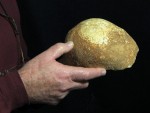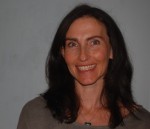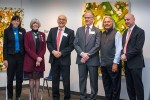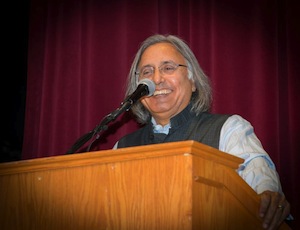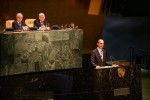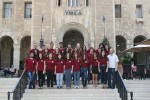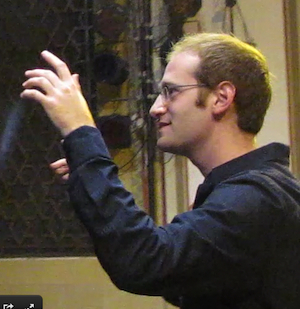Minister Jason Kenney delivers a speech at the International Holocaust Remembrance Day ceremony at Ottawa City Hall. (photo from Government of Canada)
On Jan. 27, the world recognized 70 years since the liberation of the Auschwitz-Birkenau concentration and extermination camp, which coincided with the 10th annual International Day of Commemoration in Memory of the Victims of the Holocaust. Among the commemorations was a tribute to survivors held at City Hall in Ottawa.
Hosted by Rabbi Reuven P. Bulka of Ottawa’s Congregation Machzikei Hadas, the commemoration was attended by more than 300 people, including the ambassadors of Israel, Poland and Germany; British High Commissioner to Canada Howard Drake; Dr. Andrew Bennett, Canada’s ambassador for religious freedom; and other dignitaries and guests.
Minister Jason Kenney offered remarks on behalf of the Government of Canada. In his speech, he said, “The Holocaust stands alone in human history for its incalculable horror and inhumanity – and yet has a universal message for mankind, a unique power as long as we insist that it be remembered. Just as we are compelled as free individuals to search for meaning, so, too, are we compelled as communities, as societies and as countries to continue to learn lessons from this most dark and tragic chapter of human history.”
He also noted, “As time passes and as we mourn the passing of many members of the generation that witnessed and survived the Nazi era, it has become even more imperative for moral societies like ours to remain firm in that commitment to memory.
“There’s always the risk that the memory of the Shoah could be lost, just as the Holocaust is declared by some not to have happened or, horror of horrors, to have been invented for political gain. Indeed, we have seen in recent public opinion research that the majority of the population of many countries in the world knows nothing of the Shoah. That is why Canada must join with its IHRA partners, the International Holocaust Remembrance Alliance, in promoting Holocaust research and education around the world.”
Of the IHRA, Kenney said, “Seventy years after the liberation of Auschwitz, today the 31 members and eight observer countries and seven permanent international partners of the International Holocaust Remembrance Alliance collectively reaffirm our unqualified support for the Stockholm Declaration of 15 years ago as High Commissioner Drake described and, with it, our commitment to remembering and honoring the victims of the Shoah, to upholding its terrible truth, to standing up against those who would distort or deny it and to combating antisemitism and racism in all of their forms.”
At the City Hall commemoration, a tribute in film was also featured, and 93-year-old Holocaust survivor Cantor Moshe Kraus recited El Male Rachamim and the Kaddish, which was followed by the lighting of six candles, each representing one million of the six million Jewish men, women and children murdered 70 years ago.
Earlier in the day, MP Mark Adler delivered a statement on the Holocaust from the floor of the House of Commons (youtu.be/wO-HgyRkUUc) and, later that evening, Kenney and his colleagues attended a ceremony on Parliament Hill.
The Hon. Tim Uppal represented the Government of Canada in Poland. During his speech honoring the survivors, he said, “Canada is a leader in the international fight against antisemitism because it is a Canadian tradition to stand for what is principled and just. Our government is dedicated to ensuring future generations understand the lessons of the Holocaust in order to prevent acts of hate and genocide.”
– Courtesy of Office of the Minister of Employment and Social Development and Minister for Multiculturalism



